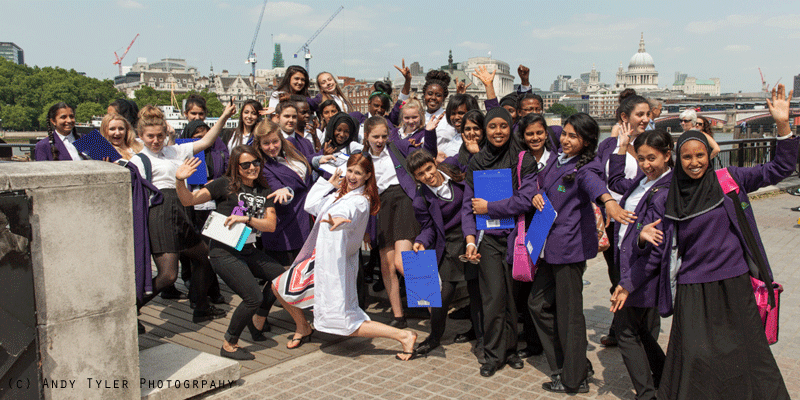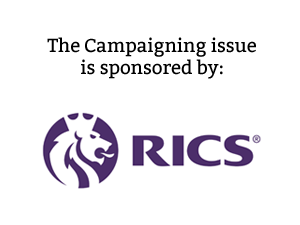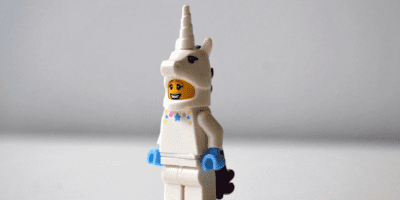Dr. Nathalie Pettorelli is a senior research fellow at the Institute of Zoology, Zoological Society of London, where she carries out research on assessing and predicting the impacts of global environmental change on biodiversity and ecosystem services. Dr. Seirian Sumner is a reader in Behavioural Ecology at University College London. In 2011 they set up Soapbox Science as an annual public science communication event with a difference and they received a Points of Light Award from the Prime Minister in 2015 in recognition of their achievements.
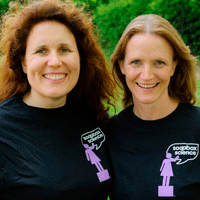
“…Achieving parity in science (and society) starts at home – if you can convince your colleagues, friends and family that there is a problem, that such inequality is unacceptable, and most importantly that everyone can make a difference if they just speak out, then we can hope to start challenging social norms…”
The rise and rise of Soapbox Science
Soapbox Science is a grass-roots science event that brings science to the masses and tackles inequality issues in science. Female scientists stand on soapboxes on busy urban streets and chat with the public about their work. Our events aim to transform public areas into an arena for public learning and scientific debate; they follow the format of London Hyde Park’s Speaker’s Corner, which is historically an arena for public debate. Soapbox Science started in 2011 in London; our initiative slowly but surely expanded to other cities, and then to new countries, over the past five years.
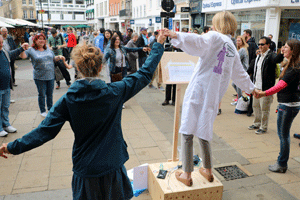
Soapbox is increasingly being recognised as a successful model to help tackle gender disparities in science, and over the past 12 months our initiative has received two awards (from the Zoological Society of London and the British Ecological Society) celebrating its contribution to science communication and the promotion of diversity.
This year, we have also been invited to submit oral evidence to a parliamentary inquiry run by the Commons Science and Technology [select] Committee on science communication. This sort of recognition does wonders for Soapbox as an initiative and as a brand. The more recognition Soapbox gets, the more power it will have to ultimately make a real impact on gender equality in science.
Oxford, Cambridge, Cardiff, Reading, Milton Keynes … and then to Brisbane
2016 was an exciting year for us. We ran 13 events in the UK and our first Australian event in Brisbane. We were particularly proud to feature our initiative in five new cities around the UK, namely Milton Keynes, Hull, Cambridge, Oxford, Reading and Cardiff. This provided opportunities for more than 150 women in science all over the UK to get on their soapbox and tell the world about their work.
The appetite for new events across the nation is incredible! New locations come on request, often from previous speakers who are desperate to have an event on their doorstep, but also from scientists who’ve not managed to get to an event but as so excited by our refreshing, inclusive approach that they want to learn how to organise an event and set it up in their own town.

This year was also momentous in that we had our first overseas event. We’ve had a lot of interest from around the globe, with many enquiries about setting up events in different countries. We were therefore delighted to see the launch of Soapbox Science International this summer in Brisbane Australia. This was largely driven by one of our faithful Soapbox supports, Dr. Alienor Chauvenet.
Having helped out at events for several years, we were delighted when Alienor announced she wanted to bring Soapbox to Australia. The event took place in August, and was a great success. Admittedly, bringing Soapbox to new countries brings new challenges, but we are ready to embrace this, and can’t wait to bring Soapbox Science to cities around the world.
Running Soapbox Science alongside our day jobs
We love Soapbox and are extremely proud of it. However, it is a constant battle to keep Soapbox running, especially as it is expanding very rapidly! We both have full time academic / research positions, and sadly Soapbox activities don’t earn us the same level of respect and recognition that research publications and grants do. So it’s a delicate balancing act to ensure Soapbox keeps ticking along, and simultaneously fulfilling our very hectic ‘day jobs’!
It’s frustrating as there is so much more we’d like to do with Soapbox. This has got easier over the years though, thanks to the support provided by the Science and Technology Facilities Council (STFC). Two years ago, we were able for the first time to recruit a part-time event coordinator to help us bring Soapbox beyond London. Recently, thanks to our new grant from the STFC, we were able to appoint a new full time member of staff, Isla Watton, to help with the administration, coordination and training.
Funding Soapbox Science
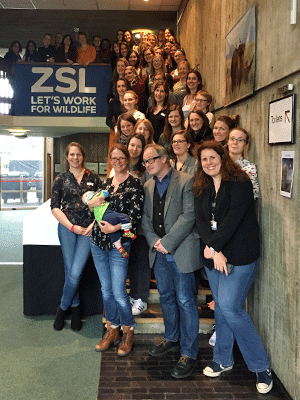
We are funded currently by a large public engagement award from STFC. This is our second of these two year awards and they have changed our lives. It’s safe to say that STFC is keeping Soapbox afloat right now! We are also supported by the generosity of scientific institutions and societies: for example, the British Ecological Society, the Microbiology Society, the Institute of Physics, the Royal Society of Biology and the Royal Society of Chemistry have supported previous speakers in their fields of interest.
Other sponsors focus on supporting specific events or long-term in kind support; for example, the Zoological Society of London has provided logistical support for Soapbox Science in various ways over the past five years. The L’Oréal For Women in Science Fellowship has generously supported our London event on the Southbank since its inception. We need more sponsors like L’Oréal, who provide us with security, allowing us to have a long term vision for developing Soapbox.
Much more to be done to achieve gender parity in science
Sadly, recent stats for women in science do not look encouraging, and we are still to see any significant sign of improvement. It’s fair to say that some progress is being made, but as the STEM sectors continue to grow, the rate at which women are taking up jobs does not compare to that of men.
Whilst it is positive to see an increase of 13,000 more women working in core STEM occupations, the proportion of the workforce made up by women has decreased from 22% to 21% since 2015. Interestingly, fewer women and men graduated from UK universities with a STEM degree in 2015 than in 2014, but the drop in women was three times greater than men in physical sciences and five times greater than men in mathematical sciences.
Advice for others setting up gender equality initiatives
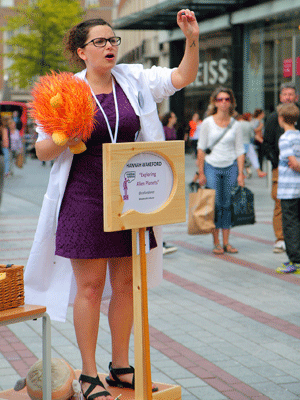
Getting involved with gender equality initiatives is extremely rewarding, and we would encourage any person who is passionate about diversity and its importance in society to get engaged and set up new ones. The more initiatives we have that open dialogue on gender equality, the better: don’t think that your efforts would be too small.
Achieving parity in science (and society) starts at home – if you can convince your colleagues, friends and family that there is a problem, that such inequality is unacceptable, and most importantly that everyone can make a difference if they just speak out, then we can hope to start challenging social norms. We can do this by tackling the ingrained cultural problem of gender stereotypes and implicit bias that lie at the root of the problems.
Plans for Soapbox Science in 2017
Next year, we aim to consolidate further our international expansion, with Toronto, Berlin, Galway and Palermo all signed up. And of course Brisbane will continue too! We will also bring Soapbox to new UK cities, namely Brighton, Leeds and Lincoln.
An interesting development for us is the launch of a new type of event, the Soapbox Art & Science events. On top of our usual events, Soapbox Science’s 7th year is indeed set to bring innovative, awe-inspiring, and mind-boggling science to arts festivals around the UK. Thanks to our new STFC-funded project, Soapbox Art & Science will be uniting artists and female scientists to explore fresh and engaging ways of communicating scientific ideas through art, and testing them out on audiences at arts festivals.
https://twitter.com/soapboxscience
https://twitter.com/pettorelli
https://www.facebook.com/soapboxscience
Main image courtesy of Andy Tyler Photography – http://andytylerphotography.co.uk/ | Call 07771 458 721 | Email hello@andytylerphotography.co.uk

